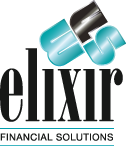 Self-employed borrowers often come up against the challenge of demonstrating their true state of income to back up their loan applications, but this need not stop you buying your dream home. When you are self-employed and applying for a loan, a lender will have a checklist of documents required to support your application. This includes evidence of 2 consecutive years of income, financial statements of trading entities, personal tax returns and notice of assessment, ATO portals, details of business repayments/liabilities, notes on operating structure, business
Self-employed borrowers often come up against the challenge of demonstrating their true state of income to back up their loan applications, but this need not stop you buying your dream home. When you are self-employed and applying for a loan, a lender will have a checklist of documents required to support your application. This includes evidence of 2 consecutive years of income, financial statements of trading entities, personal tax returns and notice of assessment, ATO portals, details of business repayments/liabilities, notes on operating structure, business
background, and the list can go on. Other lenders offer low-documentation (low-doc) loans for self-employed borrowers who don’t have current financials but rely on other sources of information that Banks will not use. This means that rather than the usual documentation the lender may be satisfied with, a self-employed applicant can provide BAS, bank statements, or a declaration from their accountant to demonstrate their income. Generally, you can expect an interest rate for a low documentation loan to be one to two percentage points higher than for a full-documentation loan.
Of course, as with any mortgage application, you must still prove that your income outstrips your spending, and you can service the loan. Depending on your business and time of financial year, getting this right can take a solid six to twelve months of preparation.
Here are some tips to help:
- Reduce debt
Pay down credit cards and personal loans and be sure to lower the credit limits as they are paid down, as lenders assess the total credit available to you as a potential debt level, not
just the amount you owe. - Speak to a finance broker
A broker can discuss the how the structure of your business and your taxable income will impact your ability to borrow with you. Finance brokers also have access to lenders that
assess applications on a case-by-case basis and tailor their products to self-employed borrowers and contractors. - Do your taxes
Make sure you do your taxes when you should, and always pay your tax assessments on time. - Save
Saving a deposit is obviously important and showing your ability to live within your means and save is as well. This is key to serviceability – you want to show at least six-month
history of high savings and low expenses.
Being prepared and getting the right advice is the key to ensuring a smooth application experience.
